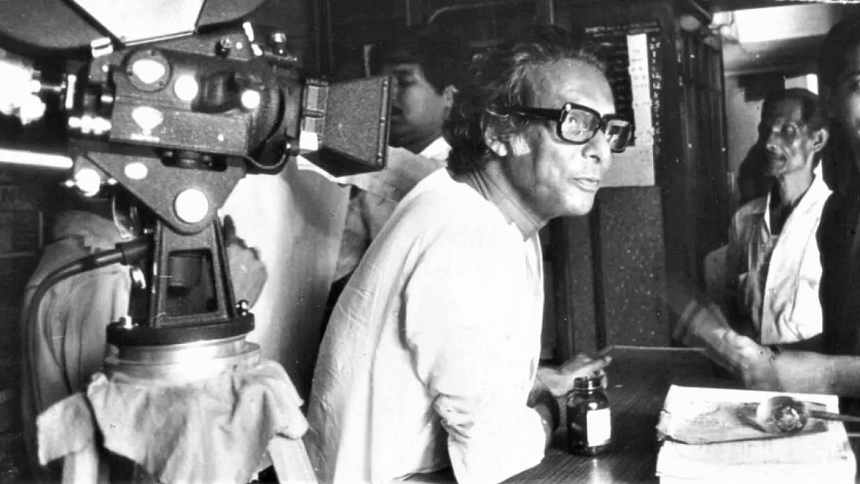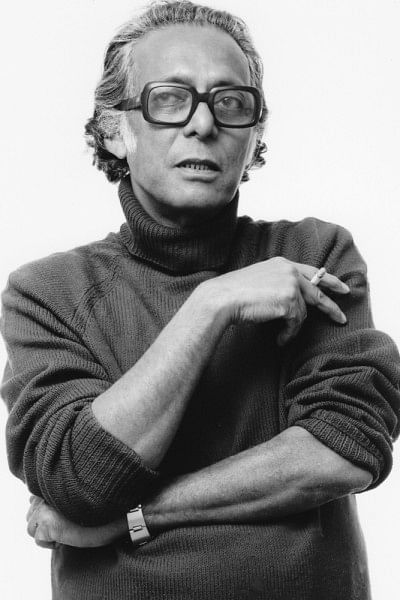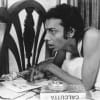Celebrating Mrinal Sen’s 101

Mrinal Sen, a pioneering figure of Indian cinema, continues to inspire artistic representation of social consciousness. Born on May 14, 1923, in Faridpur, his journey as a filmmaker traversed tumultuous socio-political landscapes. Through the composition of his illustrious career, he distinguished himself as a filmmaker of unparalleled vision and courage, particularly because his works transcended mere entertainment to embody profound social commentary.
His formative years were steeped in the rich cultural landscape of Bengal, where he developed an early fascination for storytelling and the visual arts. Sen was deeply influenced by the socio-political upheavals of his time, including the Indian independence movement and the partition of Bengal. His academic pursuits led him to study Physics at the Scottish Church College in Kolkata, where he honed his analytical skills and developed a keen interest in societal dynamics.

Inspired by the neo-realist movement in European cinema, particularly the works of Italian directors such as Vittorio De Sica and Roberto Rossellini, he embarked on a cinematic journey that redefined the scope of Indian cinema. His directorial debut, "Raat Bhore" (1955), marked a new voice in Indian filmmaking, one that eschewed conventional narrative tropes in favour of a more realistic and introspective approach. His cinematic lens is marked by a brilliant exploration of the human condition and societal dynamics, delving deep into the fabric of Indian society.
Central to his cinematic ethos was his pivotal role in shaping the Indian Parallel Cinema or New Indian Cinema movement. Alongside contemporaries such as Satyajit Ray and Ritwik Ghatak, Sen spearheaded a cinematic revolution that challenged the hegemony of mainstream Bollywood cinema. Fearlessly confronting issues of poverty, inequality, and political unrest, his films became beacons of social consciousness, sparking dialogue and fostering empathy among audiences.
Through his films, Sen interrogated the complexities of Indian society, laying bare its injustices and aspirations. "Bhuvan Shome" (1969) shifted from traditional Bollywood narratives, presenting the story of an uptight government official who undergoes a transformative journey while on a hunting trip in rural India. Through its minimalist approach and subtle storytelling, it established Sen as a pioneering force in the Indian Parallel Cinema movement. On a similar note, his anthology film "Calcutta 71" (1972) comprised three distinct narratives exploring the socio-political landscape of Kolkata. Through its vignettes, the film offers a searing critique of urban decay, political corruption, and social fragmentation.

Another notable work of the late director's, "Akaler Sandhane" (1980), was set during the Bengal Famine of 1943 and followed a film crew attempting to make a documentary about the famine while grappling with ethical dilemmas and personal conflicts. Through its metanarrative structure, the film interrogated the role of cinema in representing historical truths and human suffering.
Mrinal Sen's uncompromising commitment to truth and authenticity resonated deeply with audiences, earning him critical acclaim both at home and abroad. His directorial films, often imbued with stark realism and uncompromising honesty, served as powerful indictments of social injustices while offering glimpses of hope and resilience amidst adversity.
As we remember Mrinal Sen on the special occassion of his 101st birthday today, we pay tribute not only to his cinematic genius but also to the enduring relevance of his viewpoint. His films, characterised by their humanism, empathy, and incisive critique of societal norms, continue to inspire filmmakers. His celluloid legacy portrays the enduring power of storytelling to illuminate the audiences, encouraging meaningful dialogues of social significance.

 For all latest news, follow The Daily Star's Google News channel.
For all latest news, follow The Daily Star's Google News channel. 









Comments